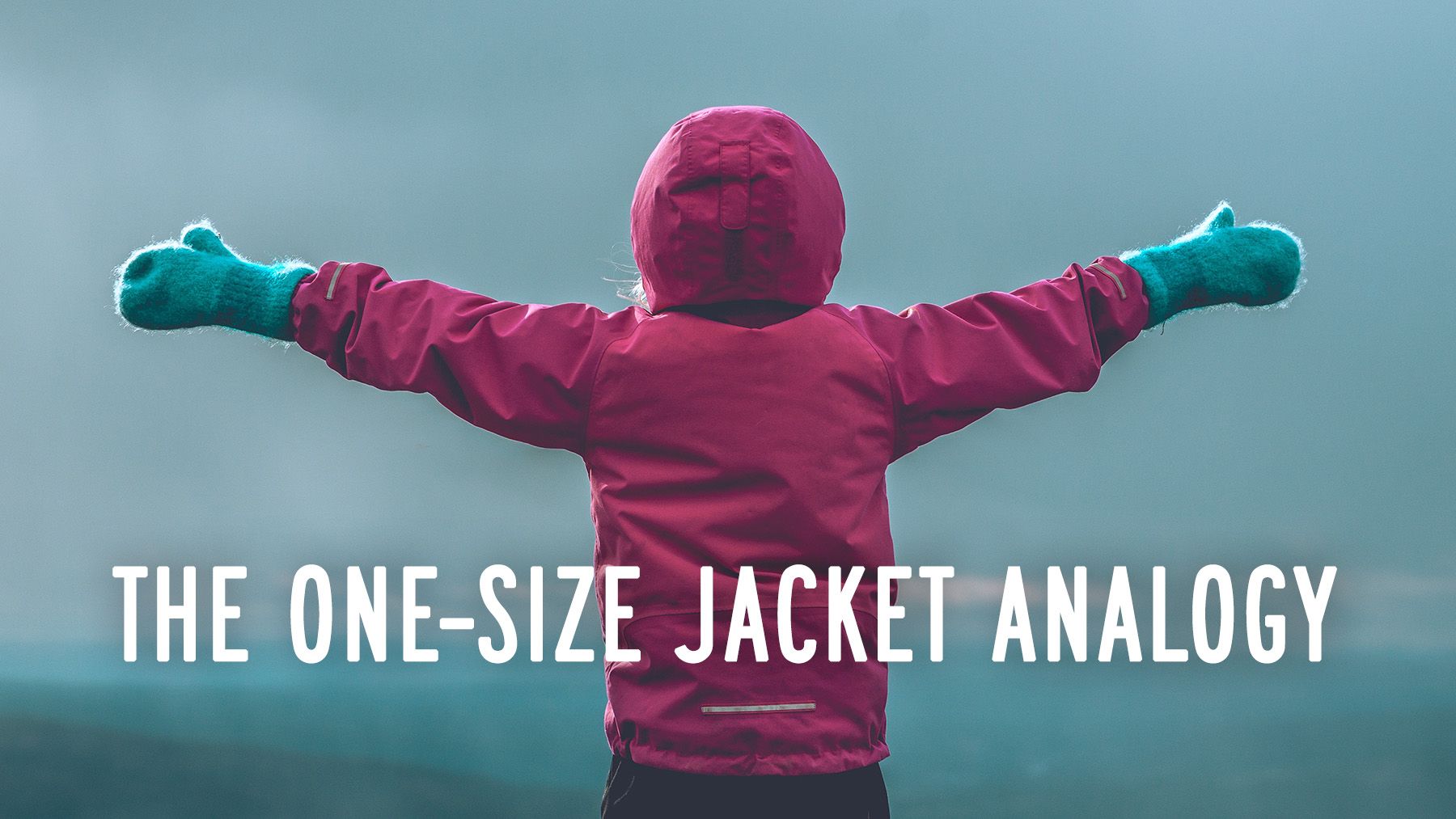How we told our daughter we were switching to homeschooling
I used an analogy about a one-size-fits-all jacket to help our daughter understand this big change.

I've already shared how we came to the difficult decision to switch from traditional schooling to homeschooling. Wanda was six, and we'd just been through a year of extraordinary effort by everyone involved, most especially our daughter.
How was I going to explain to her that she wasn't going to be joining her class for first grade next year? That we'd be saying our goodbyes to the school and all the people there? That despite our trying very hard to make her school work out, we were going to toss all that and switch to something rather weird?
She already was feeling acutely that school wasn't working for her the way it was supposed to: she was telling us that she needed to be playing more, and she desperately wanted to be learning something. (She went into kindergarten already reading chapter books, and by winter break was doing multiplication and division.¹ Sitting and watching other kids sound out letters and count beans, while being expected to keep her ADHD body still and quiet, was excruciating for her.) She was experiencing some deep emotional pain; she knew something was very wrong.
I came up with an analogy for her: the one-size-fits-all jacket analogy. A one-size-fits-all jacket isn’t actually able to fit everyone, it fits say 80% of people. It’s able to be made cheaply, and the people who can fit it just fine don’t think much about it. However, she just happens to need a different size jacket. It’s silly to think there’s something wrong with her, and there’s not necessarily something wrong with the one-size-fits-all jacket either. There is something wrong with a world that doesn’t make sure everyone has a jacket, and that stinks. But we’re making sure she has the right jacket.
That framing seemed to do the trick. The jacket analogy helped her make sense of it all, and helped her deeply understand that it truly wasn't her fault. After hearing it, she felt good—even excited—about the new possibilities.
¹ It feels a little silly to clarify this, but nobody taught her those things. We weren't doing some sort of weird academic boot camp preschool. About 20% of kids figure out how to read on their own, and Wanda was one of them.

